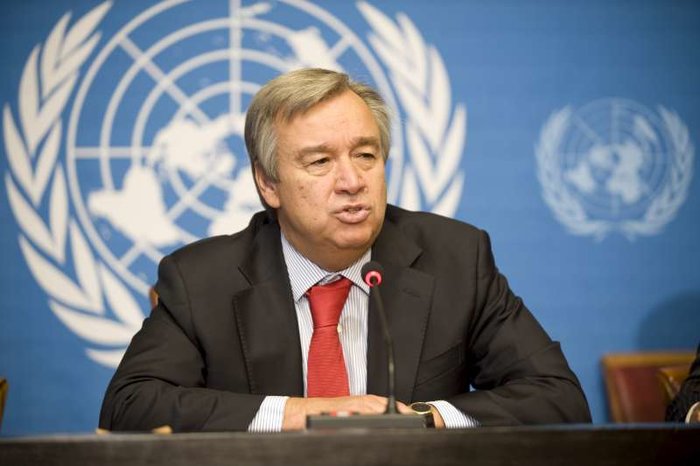Responding to the latest findings of the Intergovernmental Panel on Climate Change (IPCC), UN Secretary-General Antonio Guterres said on Monday that unless governments worldwide reassess their energy policies, the world will be unlivable.
A new flagship UN report on climate change out Monday indicating that harmful carbon emissions from 2010-2019 have never been higher in human history, is proof that the world is on a "fast track" to disaster, the UN chief warned, with scientists arguing that it's "now or never" to limit global warming to 1.5 degrees Celsius.
His comments reflected the IPCC's insistence that all countries must reduce their fossil fuel use substantially, extend access to electricity, improve energy efficiency and increase the use of alternative fuels, such as hydrogen.
Unless action is taken soon, some major cities will be under water, Guterres said in a video message, which also forecast "unprecedented heatwaves, terrifying storms, widespread water shortages and the extinction of a million species of plants and animals."
The top UN official added that "this is not fiction or exaggeration. It is what science tells us will result from our current energy policies. We are on a pathway to global warming of more than double the 1.5-degree Celsius limit" that was agreed in Paris in 2015.
Providing the scientific proof to back up that damning assessment, the IPCC report, written by hundreds of leading scientists and agreed by 195 countries, noted that greenhouse gas emissions generated by human activity have increased since 2010 "across all major sectors globally."
An increasing share of emissions can be attributed to towns and cities, the report's authors continued, adding just as worryingly, that emissions reductions clawed back in the last decade or so "have been less than emissions increases, from rising global activity levels in industry, energy supply, transport, agriculture and buildings."
Striking a more positive note, and insisting that it is still possible to halve emissions by 2030, the IPCC urged governments to ramp up action to curb emissions.
The UN body also welcomed the significant decrease in the cost of renewable energy sources since 2010, by as much as 85 percent for solar and wind energy, and batteries.
More about: #AntonioGuterres
















































